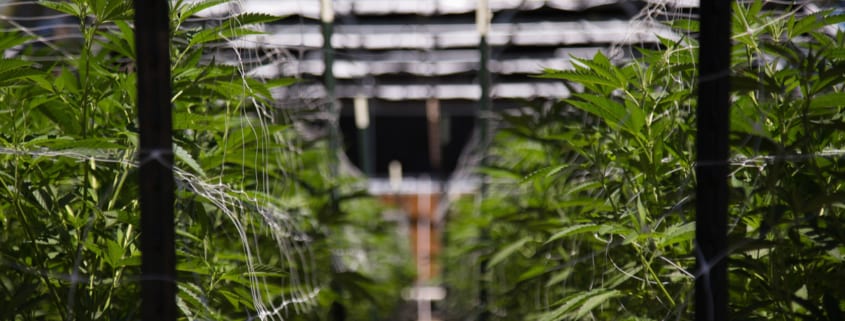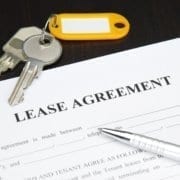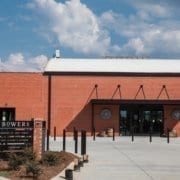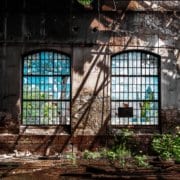The Budding Marijuana Market and Its Impact on Commercial Real Estate
In the United States, 30 states and the District of Columbia have laws legalizing the use of medical marijuana, and 9 states and the District of Columbia have laws legalizing the recreational use of marijuana. These laws vary from state to state in terms of how broad they are, what products they permit, and how it can be sold and consumed.
Though marijuana remains illegal on the federal level, most people think it’s an industry worth investing in, showing massive gains over the past couple of years. In fact, a recent Gallup poll found that 2 out of 3 Americans support legalizing marijuana (the highest percentage ever). And the marijuana market in the United States is currently expected to reach $22 billion by 2022 and will account for approximately ¾ of cannabis revenue worldwide
Regardless of where you stand on the issue, the legalization of marijuana presents new opportunities in the world of commercial real estate. The legalization of marijuana means increased demand for cultivation and manufacturing facilities, testing facilities, warehouses, retail shops, and eventually consumption lounges. However, due to the nature of the product, there are strict guidelines and regulations around where these facilities and shops can be located and how they can be funded. Despite these restrictions, cities where marijuana is legal are seeing a real estate boom that is powered by this budding industry. The impact of marijuana will continue to grow as more states legalize the production and consumption of weed for medical and recreational purposes.
Read ahead to learn about some of the impacts this new segment of the industrial real estate market is having in the CRE industry and on cities across the country.
The Effect on Property Prices
In cities where the cultivation, manufacturing, and sale of cannabis products is legal, the industry has caused a spike in both industrial and residential property values. The cannabis industry is unique in that it is currently extremely fragmented and localized. Marijuana must be cultivated in the state where it will be sold and consumed, there is limited space zoned for marijuana activities, and there is increasing demand for this tight supply of suitable spaces. In fact, JLL estimates that Canada, which recently legalized recreational marijuana, will need 5x more industrial real estate by 2020 just to meet demand. These factors, as well as concerns attributed to conflicting state and federal laws, are driving up prices and boosting rents. Additionally, property owners are taking on the risk of potentially losing their property in a federal civil asset forfeiture action, as the Feds have been known to seize property allegedly tied to federally illegal drugs, including marijuana in states where that drug is legal. But it’s a risk many property owners are willing to take on, as they often charge 2-3x above market rents.
Because of these challenges, some commercial property companies have turned to specializing in listing properties specific to the cannabis industry. And in an increasing number of cases, growers buy rather than rent their properties, often times funded by private partners rather than banks. And on the residential side, home values in nearby neighborhoods have increased about 13% on average, which also means rising property taxes.
Adaptive Re-Use for Industrial Properties
Due to the rise in globalization and the decrease in American manufacturing and production, many industrial spaces have simply been abandoned, or the property owners are unable to lease them out. Many buildings zoned as industrial have been vacant for years, but they are now some of the most valuable properties in the area thanks to the cannabis industry. This type of property is well-suited to the marijuana cultivation business, presenting new (and profitable) opportunities for those property owners who can repurpose the buildings to accommodate this budding industry.
Marijuana growers typically look for spaces that are 5,000 square feet to 10,000 square feet in size – properties large enough to hold thousands of plants. Data centers, self-storage properties, and factories are all being repurposed for growing and manufacturing of marijuana. Currently, 2/3 of marijuana cultivation operations is located in warehouse spaces and 26% is in manufacturing spaces. These types of properties have sturdy, thick construction that is conducive to growing a consistent, quality product, can accommodate any needed climate controls, and are easier to secure than other types of property. And the ability to use tiered systems means a more efficient use of the space.
Some property groups even focus on the cannabis industry, buying buildings, retrofitting them, and leasing them specifically to marijuana growers. It can cost millions to turn a vacant warehouse into a suitable cannabis facility, due to the strict requirements for lighting, climate control, plumbing, and security. But the higher rents mean that owners see a return in a reasonable amount of time.
Urban Revitalization
The marijuana industry is reshaping and revitalizing deteriorating, blighted neighborhoods and sending property values soaring. Cities where marijuana is legal have proven to attract more homebuyers, job seekers, and entrepreneurs. And the increased demand for commercial properties for marijuana-related activities has created a significant number of jobs in industries such as construction, electricity, and plumbing (growing facilities require very specific lighting and water systems).
Marijuana retail shops have also helped revive some suburban strip malls. Many retailers are looking for 1,000-3,000 square feet of space, and at the same time many landlords are struggling to attract tenants due to competition from Amazon and big-box retailers. But because of high traffic, marijuana retail shops can help attract many other businesses and tenants. Colorado is experiencing these effects first-hand, as there are now more cannabis dispensaries than stand-alone Starbucks and McDonalds locations combined, and 1 in 11 buildings in Denver are now associated with the cannabis industry.
However, marijuana storefronts can sometimes be limited by the barriers imposed by other tenants who fear being tainted by association with cannabis tenants. Further, properties associated with the marijuana market must be located in properly-zoned buildings/areas and also cannot typically be located within 1,000 feet of schools or churches, severely limiting options to set up shop.
The industry expects that many of these challenges and barriers will drop as consumption becomes more socially acceptable, along the lines of liquor. The real estate side of the cannabis boom has become so lucrative that some firms focus solely on properties with an end-use specific to the marijuana industry. And of course, there is the fact that legal marijuana boosts the economy, with one study from New Frontier Data suggesting that legal marijuana could generate more than $132 billion in federal tax revenue and over 1 million jobs across the US in the next decade.











